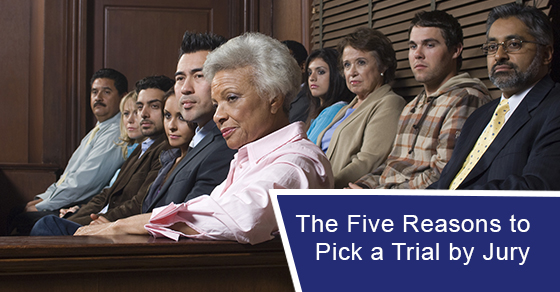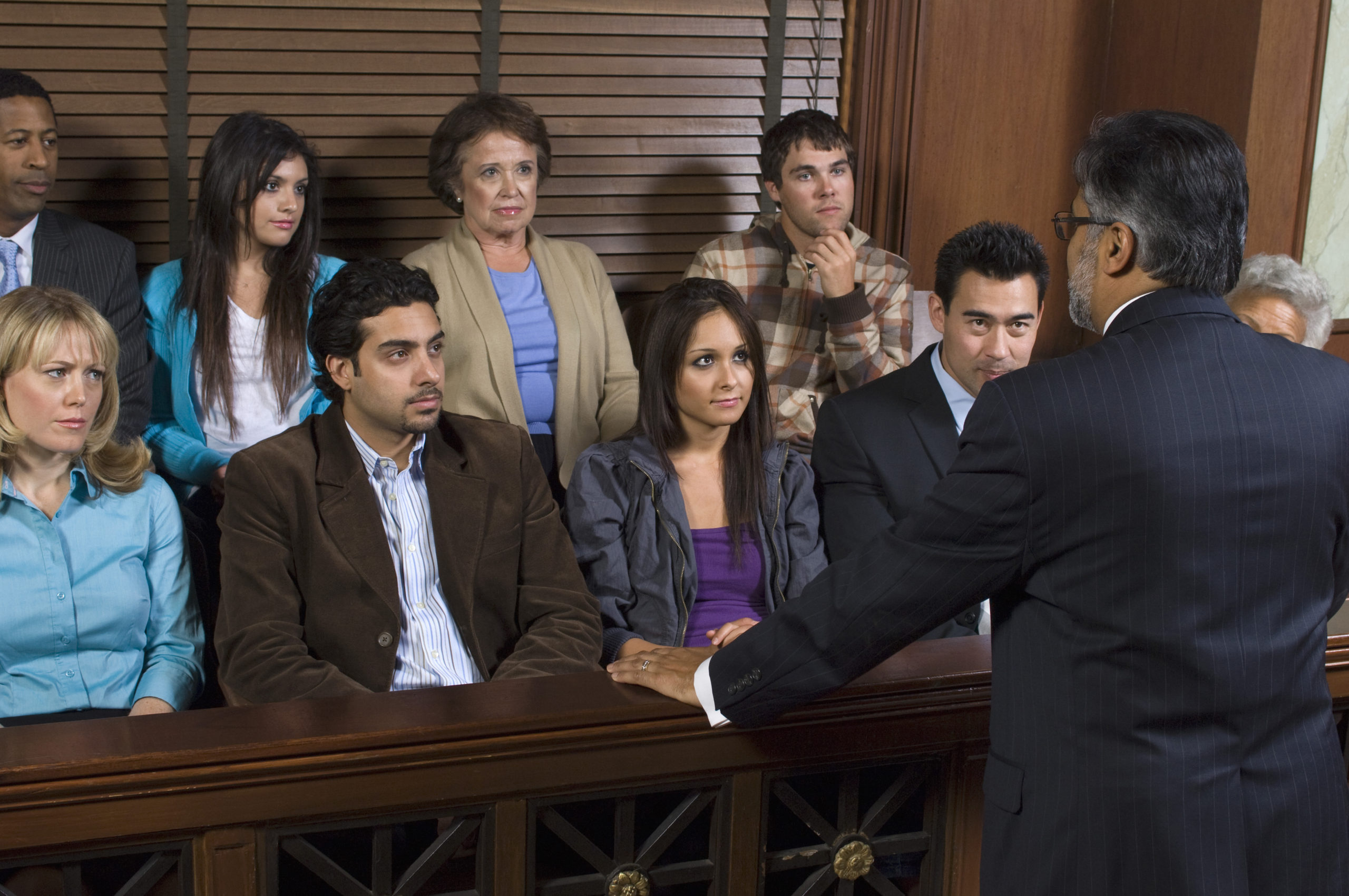The Five Reasons to Pick a Trial by Jury

My lawyer tells me I have to choose whether to have a trial by judge alone or by jury. Why would I pick a jury trial?
Jury trials are reserved for a select group of cases in Canada, where either the charges are particularly serious, or the allegations date back more than a year before your arrest. Who decides your case (a judge alone, or a jury), can make a big difference to the outcome.
Here are five main reasons to choose a jury trial.
- With a jury trial, you will get a decision immediately. When 12 people are picked from the community to hear your trial, the trial will continue until it is finished. This is to minimize the disruption to the lives of the jurors, who have had to take time away from work and family to hear your case. When a judge alone is deciding a case, it will often stop and start and resume based on the judge’s schedule. That can sometimes mean many months before you get a decision. Also, when a trial stops partway through and resumes weeks or months later, the momentum is lost, and the memory of the judge and witnesses tends to fade. Sometimes this can work in your favour; most often the loss of time and momentum is frustrating and discouraging.
- A judge has to be particularly careful and attentive in jury trials. In a judge-alone trial, the judge can take as much time as they need to decide the case and write up the judgement. They can go back and make changes and corrections to the written decision. In a jury trial, there is no written judgment: the jury simply pronounces the verdict of Guilty or Not Guilty. As a result, the instructions given to the jury by the judge, and the comments the judge makes to the jury, are carefully scrutinized by the Court of Appeal. Errors can result in the case being overturned. As a result, judges are very careful about what they say and do in a jury trial, because they can’t go back to their office and quietly fix any problems later on.
- A jury will bring a more fresh, open-minded perspective to the case. Judges have “heard it all before”. A jury who has been randomly called in for jury duty, undergone the selection process and sworn an oath to do their best to decide the case, will be focused, serious, and attentive. Because it is usually their first time participating in a criminal case, they will be interested, and determined to do a good job. A judge also swore an oath to do their duty when he or she was appointed, but usually many years ago, and will be very busy with a huge caseload. Your case is just one of many to get through. Because a jury is fully engaged in only one case- yours, jurors tend to focus carefully on problems with the evidence, they think carefully and critically, and ask themselves a lot of questions. A judge, because they have decided so many cases, may be more likely to minimize or justify problems in the evidence as the Crown tries to build a case “beyond a reasonable doubt”. A jury tends to be more willing to question and doubt the Crown’s evidence. There is no hard and fast rule about this; as with anything else in life, there are exceptions. There are many excellent and conscientious judges on the bench. But when you are fighting for your freedom, you need to take advantage of any opportunity that you can to win.
- With a jury, the Crown has to persuade twelve people, not just one. This is a huge advantage for the defence. With a judge, there is only one person examining the evidence and deciding the case. In a jury trial, the decision must be unanimous, meaning that all twelve members of your jury will have to agree on a verdict. This makes it much easier to find you Not Guilty than to find you Guilty. With a jury, you will have twelve people examining the evidence, each having a lifetime of personal experience and opinions. Each will have sworn an oath to decide this one case to the best of their ability. You will receive the benefit of all twelve of them discussing, thinking about and exchanging views about your case. There will not be a quick and easy decision before moving on to the next file. Your jury will take the time and care necessary to render a true and just verdict.
- Selecting a jury trial gives you bargaining power. Preparing and sending out jury notices; gathering a large panel of people from which a jury will be picked; and committing to staying with the case every day until a decision is reached: all of this takes up the time and resources of the Crown and court staff. When you pick a jury trial, the Crown will often be motivated to re-open negotiations with you and your lawyer, and be more open to offering a better deal, and to being more flexible about the case, in an effort to save the time and trouble to them of a jury trial. If you are looking to resolve your case through negotiation, selecting a jury trial may be the most effective way of forcing the Crown to focus on your case and finding a solution that will benefit everyone.
Selecting a trial by jury can be a powerful tool to maximize your chances of winning the case. If you have the option of a jury trial, talk to your lawyer about whether this mode of trial is best for you. Some lawyers are better than others in front of a jury, and there are a few types of cases, especially ones with involving complicated legal concepts, where a judge alone might be best. But for over a thousand years, the jury system has served as a bulwark against the power of the state to deprive an individual of his or her rights or due process of law. Judges can be affected by politics, policy and the pressures of a heavy workload in a way that juries are not. Make sure you seek advice about which route is best for you.
Arun S. Maini at the Defence Group is very experienced with both jury and judge-alone trials. If you or a loved one are facing criminal charges and need the advice of an experienced and skilled criminal lawyers in Scarborough to help you through the legal process, call The Defence Group for a free consultation at 877-295-2830 or email us through the Contact Us link throughout our website.
Arun S. Maini is a criminal lawyer and former prosecutor with over 25 years of experience


